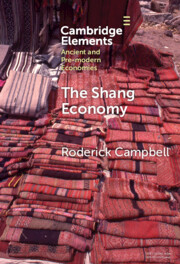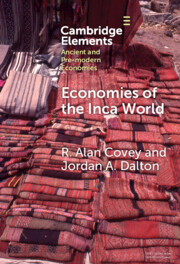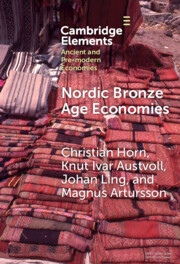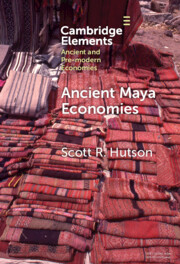Elements in Ancient and Pre-modern Economies is committed to critical scholarship on the comparative economies of traditional societies. Volumes either focus on case studies of well documented societies, providing information on domestic and institutional economies, or provide comparative analyses of topical issues related to economic function. Each Element adopts an innovative and interdisciplinary view of culture and economy, offering authoritative discussions of how societies survived and thrived throughout human history.




Elements in Ancient and Pre-modern Economies will provide:
*Summaries of well-studied non-modern economies
*Comparative analyses of economic change and topical issues related to how economies function
*Expert discussions of how non-modern economies can be studied methodologically and theoretically
*Areas of up-and-coming research and potential future directions
Themes in the Series:
Ancient and Pre-modern Economies: Cases present Elements that describe new evidence of the economic and social organization of individual societies. These studies are intended to enrich the reader’s understanding of traditional economies, and will examine societies at contrasting levels and forms of integration to explore diversity in human economies and processes governing their development. Each Element in this theme will supply critical information for broader comparative research on economic diversity and process.
Ancient and Pre-modern Economies: Comparative Studies of Economies examine theoretical and topical issues related to economic development. Elements in this theme enrich our understanding of variation within particular economic practices, and expand our awareness of traditional economies across time and space. Each comparative study considers two important original insights from economic anthropology: that humans have the capacity to organized themselves in a variety of ways and that these differences impact how societies operate.
Series Editors:
Kenneth Hirth, Penn State University, [email protected]
Timothy Earle, Northwestern University, [email protected]
Emily Kate, University of Vienna, [email protected]